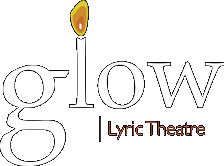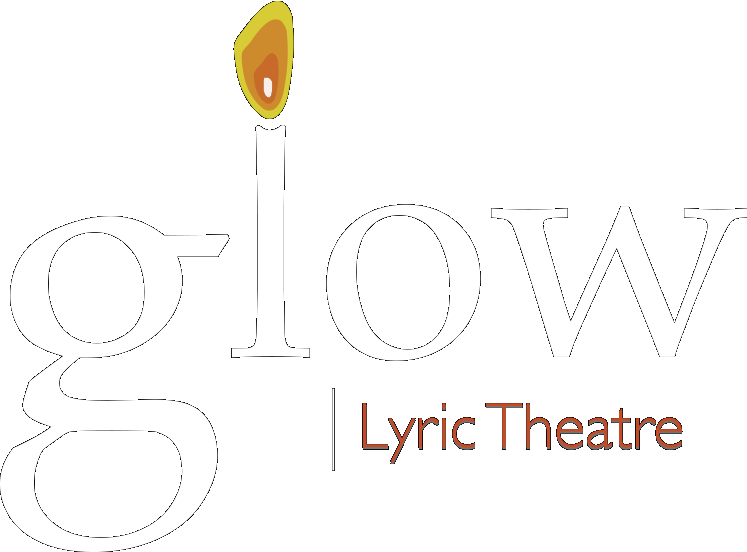It is rare to see a production company put on a combination of opera, operetta, and musical theater. While most viewers recognize the relationship between the three, they often struggle to assimilate them in the same breath, much less the same stage.
But the three can be viewed on the same stage. And when given the opportunity, they can even illuminate one another.
Such is the case with South Carolina’s Glow Lyric Theatre, a company dedicated to this very trio of art forms and the way that they can all work together to express specific worldviews. Every year the company, led by the husband and wife team of Christian Elser and Jenna Tamislea, who met on a performance put on three performances, one opera, one operetta, and one piece of musical theater, with similar thematic ideas.
For this upcoming season, which opens on July 13 and runs through the 30th, will put on a program entitled “Question Authority” that will feature “The Crucible,” “Hair,” and “The Gondoliers.”
The duo, of course, comes from diverse backgrounds with Elser an opera singer and Tamislea working in musical theater. It is no surprise that the two met while working with Light Opera Oklahoma on a production of “Showboat.”
“We had a chance meeting and we fell in love,” Tamislea told OperaWire in a recent interview.
No doubt, they hope that those who experience this trio of art forms back to back will experience a similar catharsis.
OperaWire: What is the Glow Lyric Theatre?
Christian Elser: We’re an interesting hybrid. I really take the “lyric” part of our name to heart. I am an opera singer and we wanted to present all basic forms of song, opera, operetta, and musical theater. In this country, opera is not necessarily a national form. American musical theater is. So, we have a unique season where we take a theme and present an opera, operetta and work of musical theater around that theme. That’s what makes it unique.
Jenna Tamisiea: And what our mission revolves around is producing opera, operetta and musical theater that reflect the social and political climate of South Carolina. We’re doing a lot because we’re a smaller company in the South. What we want to do is ignite change and start a conversation around these three art forms. So, when Christian mentions we pick a theme, it’s more than a theme. What we do is we make a statement with our season about what is going on in our world today, and more specifically what we might be dealing with here in SC.
OW: How did you pick this theme or idea?
JT: We had a different season planned this year and then November rolled around and the presidential race was happening. And then Trump was elected. That’s when we decided and realized how polarized everything was. There were two extremely divided sides by these two political opponents. We wanted to do a season that could reflect on coming together and also about questioning what was happening in our political sphere.
CE: And if you look, a lot of times on the right and left, people pick a side without questioning what they want out of it. I think in this country, change has happened when people have stood up against the familiar paradigm and questioned things. What country do I want to live in? That’s what became apparent for our season after the election.
OW: So how do these works line up with that theme in your view?
CE: “The Crucible” is an opera I’ve known for 30 years. And I’ve have loved it and it doesn’t get produced as much as, say, “Madama Butterfly.” I figured it was very timely right now. We constantly hear Mr. Trump speak of these witch hunts against him… Which makes me laugh a little bit. Arthur Miller wrote the play in response to the McCarthy hearings and the idea that you are guilty until proven innocent. It was kind of a mob mentality back then. I thought that this really questioned blind authority. And we started to peel off from there.
JT: As for musical theater, we picked “Hair” because it is not only a seminal work in American musical theater, but it is also a protest musical. We were seeing around the time of the election, so many protests. It’s the quintessential protest musical, but it’s also pro-love, anti-war. In some way, it is also anti-military because it’s anti-Vietnam. It is also the other end of the spectrum with what was happening in “The Crucible.”
OW: What has been the experience of reframing “Hair” in the modern context?
JT: What’s really exciting is that everyone in the cast is a millennial and they have their own form of protest that is happening now. So, we found that the relevancy of that piece lives on in the political and social culture right now.
OW: And where does the Gondoliers fit into all of this?
C: We love Gilbert and Sullivan and I think that comedy is the best way to illustrate absurdity. And that’s what they do best. “The Gondoliers pokes” fun at both sides. The idea that these gondoliers are crowned kings and then everyone realizes that they’re socialists, it’s funny. We updated it. We added contemporary references to the songs. We call it our SNL of the season. We have these heavy shows and then we have “The Gondoliers” which pokes fun at authority. So it rounds out nicely.
OW: What other themes have you done in the past?
JT: We’ve had a rather rough time in South Carolina the last few years with the shooting in Charleston, the Confederate Flag controversy. We produced black musical theater one year. And then last season, because of Nicki Haley’s decision not to admit Syrian refugees, we did “West Side Story” and “Romeo and Juliet” in response to that. We had thought about looking at racial inequality in South Carolina for this season, but it became so much larger when the political election came about.
OW: Art is inherently political, but we don’t often see organizations as open about their political perspectives as Glow Lyric Theatre. How do your audiences respond to this politicization of art on your end?
CE: This is the beautiful part of art. And audiences will accept something that they would normally be resistant to when it is cloaked in beautiful art. Look at “South Pacific.” It is racist, but it has beautiful tunes. “The Crucible” has beautiful music as well but it is cloaked in a baroque story and a dark drama. So, I think that is the beauty of theater in general. You can inherently make a statement without putting in someone’s face. It causes you to lean forward and make you think. It isn’t passive. You can take whatever you want out of it. Verdi’s “Nabucco” wasn’t about the Bible and Nebuchadnezzar. It was about the Austrian empire keeping hold of Italy. It was a political statement. We don’t want to be heavy-handed, but we have a mission and if you listen and watch, you’ll have something to think about.
JT: But I think it’s important to point out one thing. I think that we don’t necessarily want it to be about changing anyone’s life or mind. It’s about starting a conversation. If we don’t talk about it or see things that make us think, then we can’t start a conversation.
CE: Right. Theatre exercises the empathy muscle. That is often what is missing in political discourse. You’re not empathizing with the other side. You’re just taking your polemic stance.
OW: What were the challenges of creating this company? What have you learned in last 8 years?
JT: We’re a husband and wife team, so that has its own challenges. But in general, I have a musical theater background and Christian has an opera background as performers. So, when we started this company, we didn’t know what we were doing. I had no idea what the hell I was doing. We started it because we saw a need in our community. There was no opera or operetta in our community. There was no truly professional musical theater in our state. So, we decided to present things. And that moved to the point where we started it and thought that maybe it would be less than it is. We thought it would be one or two performances a year. But then people started to come out to see what we were doing and wanted to support us.
CE: It also helped that because we are professionals, we could put together high-quality performances. We have three singers from the Metropolitan Opera right now, but we’ve always had high-quality performers. That helps. It’s professional regional opera. People realize the difference and it helps a lot.
OW: What works would you like to put together for the future?
CE: For me, I desperately want to do Carlyle Floyd’s “Susannah.” Carlisle Floyd is from South Carolina and he’s still with us. That is the big show and I want to do it right. That is number one on my list.
JT: My dream musical to direct would be “South Pacific.” It is a special one because we met during a production of it. But I also think it is undervalued in what it has to say about humanity. That would be my number one choice.
OW: And operetta?
CE: Operetta, it’s tougher. I would love to do Romberg or something fun if I could work it in. There is always a market for Gilbert and Sullivan because there are still people that love it. I’m a sucker for that stuff. I would love to do one of their lesser known works. They have a lot to say and are so much fun.

